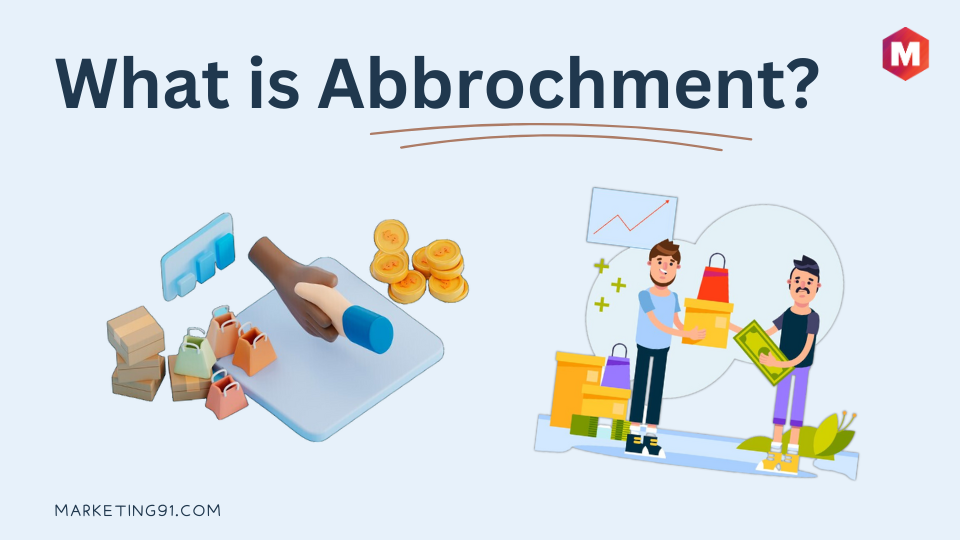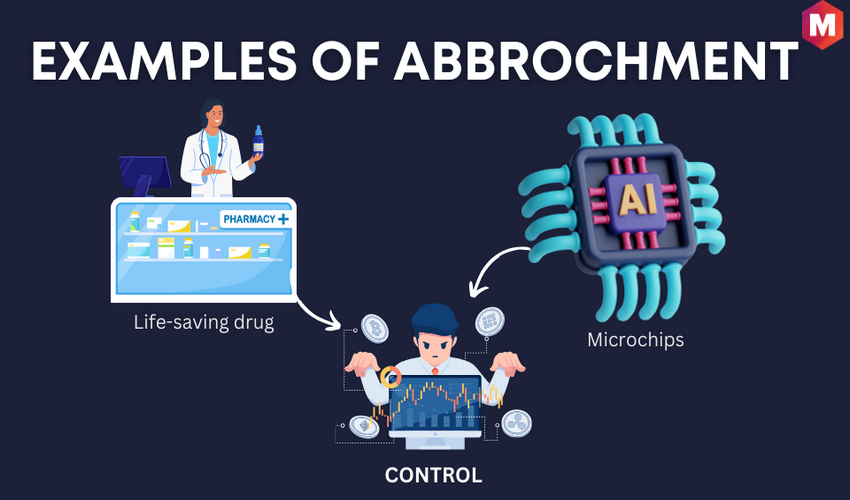Table of Contents
What is Abbrochment?
Abbrochment is a business strategy in which a company or individual purchases a product in bulk at wholesale prices with the intention of selling it at retail. This practice of forestalling the market allows the company or individual to become the sole vendor of that particular product in the market, thereby creating a monopoly.
It is commonly referred to as market monopolization, an anti-competitive practice that restricts competition and hinders fair market dynamics. For example, a company that practices abbrochment may purchase all the available stock of a product from various manufacturers and sell it at inflated prices, leaving no room for other retailers to enter the market.
Key Takeaways!
- Abbrochment allows a single person or company to monopolize a product’s retail sales, often leading to higher prices for consumers.
- The strategic bulk purchasing of a product makes the company the only vendor in one market, enabling it to dictate prices.
- Such market manipulation disrupts fair competition and can negatively impact consumer choice and affordability.
How does Abbrochment Work?
Abbrochment is the act of acquiring all available merchandise of a particular product to create an exclusive supply to resell. This practice allows the entity to control the selling process, including the price at which the product is sold, thereby manipulating the market dynamics
To enact an abbrochment, an entity or person monopolizes the supply of a product, acquiring the entirety of it and gaining control over its retail distribution.
This control allows for the implementation of higher prices, as the monopolist becomes the sole supplier in the market. These tactics disturb the market’s equilibrium, often leading to increased retail prices for consumers.
- The monopolist, having total control over the supply, can raise prices at will.
- With no competition to challenge the higher price, consumers are left with no other purchasing options.
- The lack of competing suppliers can lead to an overall decreased consumer welfare.
Example of Abbrochment
- In the world of pharmaceuticals, let’s consider a scenario where Company A obtains exclusive contracts from all major producers of a life-saving drug. By controlling the entire supply chain, Company A can inflate the drug’s price, leaving patients with no alternative but to pay the exorbitant costs.
- In the tech industry, suppose Firm C acquires all the specialized microchips needed to manufacture a specific line of smartphones. Owning the sole supply of these microchips, Firm C can surge the prices, thereby increasing the cost of the smartphones in the market.
Conclusion!
In this article, I explained what abbrochment is and how it works by monopolizing a product’s supply. This manipulative practice disrupts fair competition, leading to increased prices and decreased consumer welfare.
By understanding the negative impact of abbrochment, we can strive towards promoting fair market practices and protecting consumer rights. So, it is crucial to have regulations in place to prevent such monopolistic tactics and promote healthy competition in the market.
FAQs
1: What is the meaning of Abbrochment?
Abbrochment is a practice where a company gains exclusive control over a product’s supply. This gives them the power to inflate prices, often leading to decreased consumer welfare due to the lack of alternatives.
2: How does Abbrochment affect the market?
Abbrochment disrupts market equilibrium and eliminates fair competition. With total control over the supply, the controlling company can raise prices at will, hurting the consumers.
3: What can be done to prevent Abbrochment?
To prevent Abbrochment, it’s critical to have market regulations in place. These laws ensure fair competition and protect consumer rights by preventing monopolistic tactics.
Liked this post? Check out the complete series on Business

